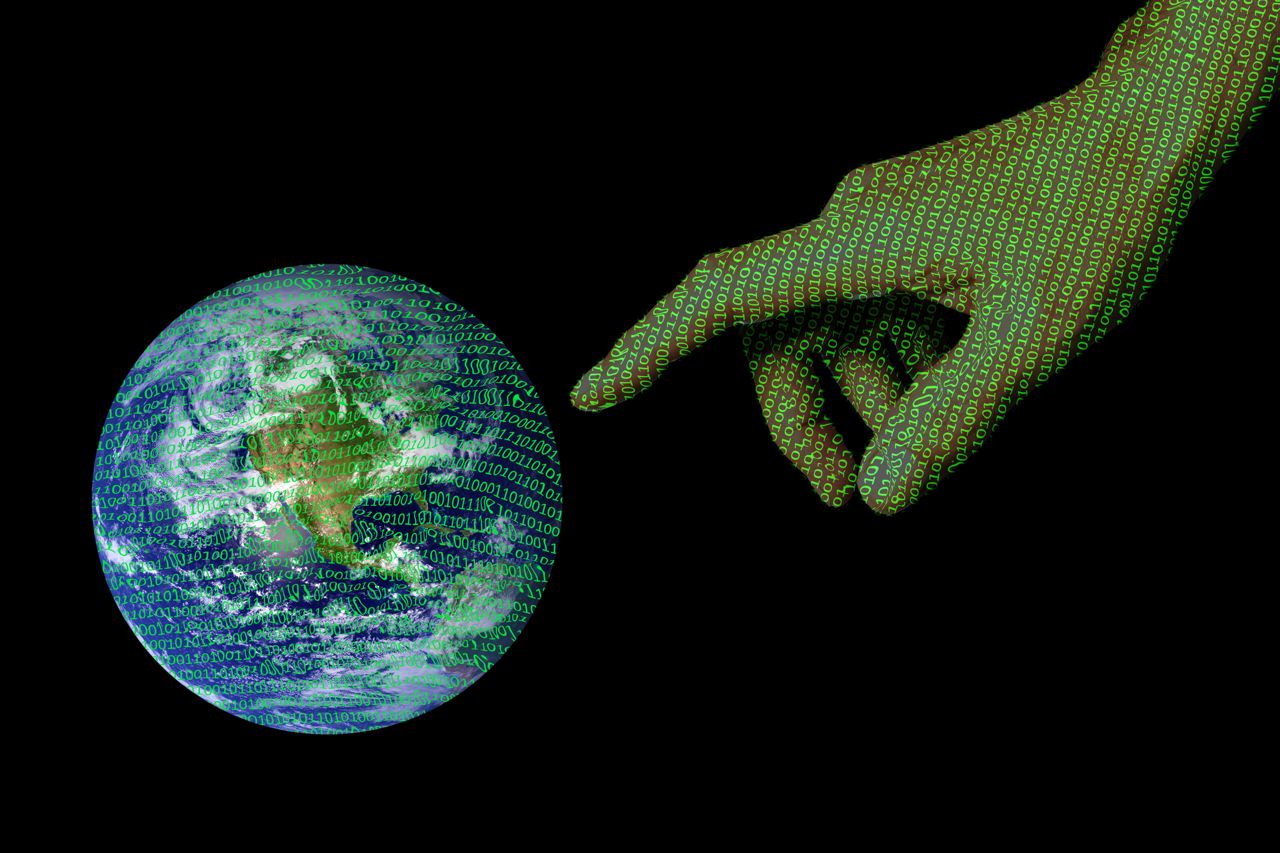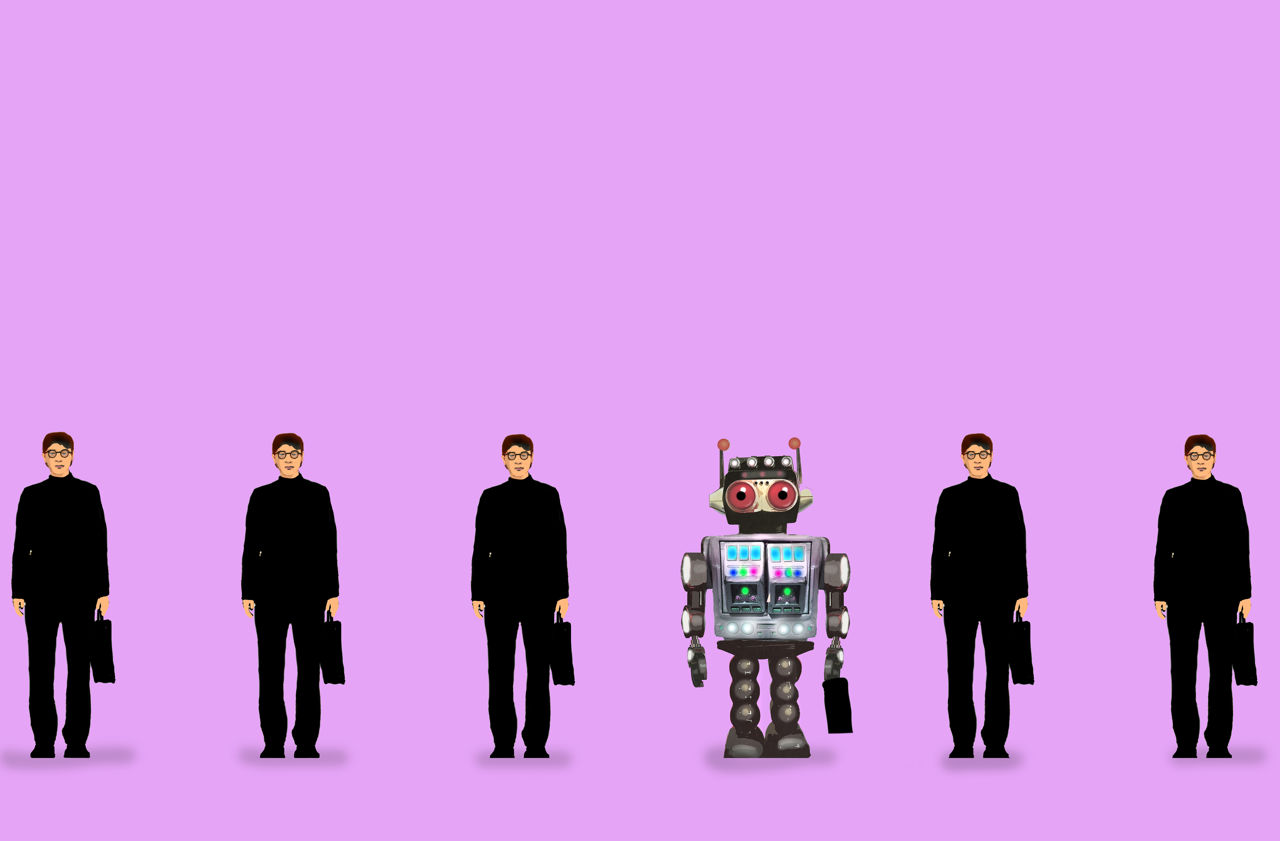AI-pocalypse Now; the great creative panic
With the release of Google's Veo 3, which gives AI images the ability to talk, artificial intelligence has taken another leap forward. But, says Chris Baker, Head of New Business at Park Village, don't bow down to the hype, because the human fingerprint will always win out.
It’s bizarre having the same conversation over and over. It’s like being in some sort of crude, video game simulation that needs an IT guy to blow in the cartridge or something.
I’ve put off writing my thoughts on this for a while, but I guess I’ll weigh in, so buckle up, it’s time to talk about the great, lumbering, silicon God rolling a joint made of your job description and lighting it with the last copy of Sight & Sound. Yes, dear reader, let’s talk about AI.
It’s time to talk about the great, lumbering, silicon God rolling a joint made of your job description and lighting it with the last copy of Sight & Sound.
Not the charming, helpful kind of AI that recommends what car insurance to buy or writes that email you just can’t be dealing with. No, I mean the big one, the one that eats storyboards for breakfast and pisses out perfectly colour-graded trailers by lunch.

Above: Artificial intelligence; a "great, lumbering, silicon God".
The conversation has been circling the creative industries like a hungry buzzard for a few years now. Ominous, predictable and easy to ignore if you kept your head down and pretended real cinema is still a thing the kids do on a Friday night.
But then AI got teeth, and a change came screaming down the runway the moment Google revealed its generative video and audio tools. The kind of reveal that makes grown directors clench hard. A collective panic like I've never seen took hold and, suddenly, the water cooler talk got weird. Dangerous, even.
The doom in their eyes
Before, it was just an ambient anxiety, like background radiation. A gentle worry that maybe some guy in a WeWork was typing “Space opera, but make it sexy” into a beta platform and calling it a short film. But now? Now you can smell the sweaty fear. People might keep cool and write philosophical LinkedIn posts about how they are above the terror storm looking down, but it’s all a lie.
That the machines are here, so give them your scripts, your storyboards, your childhood trauma and they’ll spit them back at you in 4K, Dolby Atmos, and with lens flare.
It’s in the eyes, you see. The slight twitch when someone says “prompt engineer” with a straight face. And those LinkedIn nerds all used ChatGPT to write those insights whilst pouring sweat on the keyboard. They’re just as terrified, but I guess they feel like, if they go along with it, the monster will leave their babies alone.
The hot takes are everywhere, the main one being that this is it, learn to prompt, or learn to die. That the machines are here, so give them your scripts, your storyboards, your childhood trauma and they’ll spit them back at you in 4K, Dolby Atmos, and with lens flare. That everything and more is just a few, well-crafted words away from the average Joe or Jane. But here’s the thing: I don’t buy it. And you shouldn’t either.

Above: One view of AI is that the machines are at our door and at our backs, and it's only a matter of time before they have our jobs.
The myth of inevitability
There’s a phrase that keeps circling the AI drain like a turd in a luxury toilet; ‘AI's only going to get better.’
It’s meant to be reassuring, a bit like how we know the sun will one day die but not for, like, a billion years. But every time I hear that hollow doom sentence, I get the same feeling I get when someone says, “Trust me, bro”.
We don’t watch stories, we live inside them. And, deep down, we know when something was born in sweat and struggle versus something spat out by a digital fever dream.
“AI's only going to get better.” Sure it will, but when? It still looks terrible to these old eyes, and this human brain isn't having any of it. Humanity is an apex predator of the fake. We are built to detect lies, to sniff out deception in a voice, a twitch, an uncanny smile with one too many teeth.
The same way a good editor feels the cut in their bones, we don’t watch stories, we live inside them. And, deep down, we know when something was born in sweat and struggle versus something spat out by a digital fever dream.
One day the sun will die but I highly doubt AI video will become so good that we’re deceived by it. It’s a new toy that we should all play with, but we should never get lost in the game. In the end it’s destined for the grunt work we just can’t be bothered with.

Above: Humans are built to sniff out fakery and things that don't belong.
The bubblegum slot machine
Don’t get me wrong, I’m no Luddite. I love tech. I love the possibilities. But let’s be real; a lot of what’s coming out of these AI platforms is just gamified noise.
Generative video is a slot machine, a blind monkey with a spray can at a white wedding. Someone is certainly getting covered in paint, but who, and why? The results can be impressive to watch and we can enjoy the random outcome of the spectacle, but it’s not important.
Type a prompt, pull the lever, get your dopamine pellet. You'll feel like Kubrick for half a second. You'll feel like you made something. But you didn’t.
Type a prompt, pull the lever, get your dopamine pellet. You'll feel like Kubrick for half a second. You'll feel like you made something. But you didn’t. What you did was poke a sleeping god and ask it to dream on your behalf. And this is the rub, the irony, the meat of the beast; the more that AI floods the market with hallucinated content garbage, the more powerful, more valuable and more desperately needed real human filmmaking becomes.
This is all just my hazy prediction, but what these tech clowns and 'filmmakers' are doing is making our stock go platinum by flooding the market with a junk coin thats becoming more and more worthless while the value of craft increases.

Above: With so much fakery on the horizon, people will crave the human touch.
A return to the real
When the internet becomes a pixelated landfill of unearned images and plotless sludge, you know what people start craving? Authenticity. Imperfection. The fingerprint. The wonky practical effect. A story that costs you something to make. Try to imagine how much vomit you would produce watching an AI film of Wallace & Gromit. There are not enough mops.
The reaction to generative video won’t just be legal frameworks and deepfake detection, it’ll be a renaissance of sweat-stained storytelling.
The reaction to generative video won’t just be legal frameworks and deepfake detection, it’ll be a renaissance of sweat-stained storytelling. A brutal, thunderous return to craft. Because real film, real creation, whatever medium it mutates into next, isn’t just about the picture, it’s about risk.
And AI video carries no risk. That’s its weakness. It gives it little to no value. That’s your edge. Humans risk a part of themselves; their time, their money, their reputation… all in the pursuit of art.
In conclusion... or something like it
So, yes, the AI video revolution is here. And yes, it’s wild, fascinating and absolutely going to replace a chunk of the content sludge industry, explainer videos, product renders, late-night YouTube shorts about dystopian mushrooms, etc.
But cinema? Real film? Art? The kind that gets under your skin, that speaks to you? That’s a human game. Prompts don't cut it. Because when everything is frictionless, what we’ll crave most are the stories born in blood, risk and total creative madness. The mistakes that turn into memorable moments. The collaboration of many minds.
And if you're a filmmaker, writer or storyteller clinging to a dying laptop and a half-drunk coffee then now is the time to double down. Embrace the chaos.
Learn the tools, sure, but don’t bow to them. Don’t become the monkey dancing around the monolith. We need to buckle up for those brutes. We’ve weathered this storm before. Content creators turned the internet in to a hellscape of unboxing videos and makeup tutorials.
Be the monolith.
)






